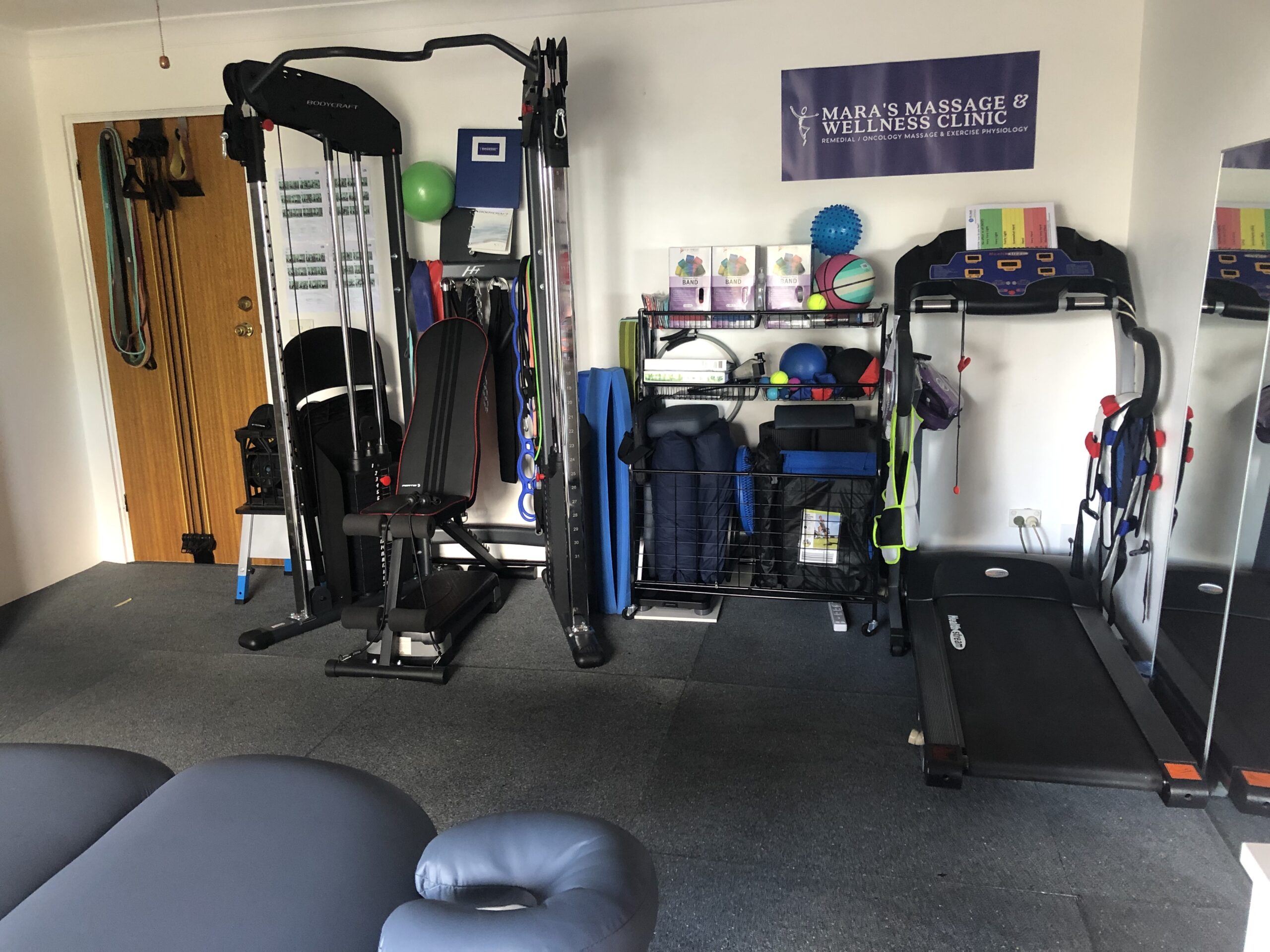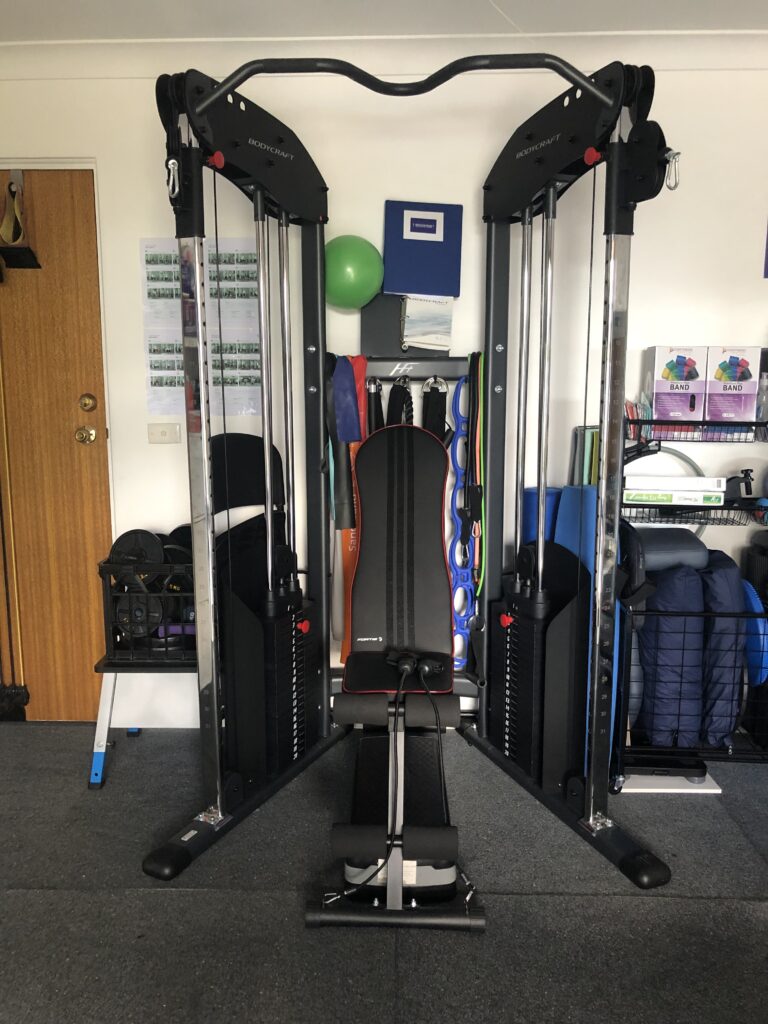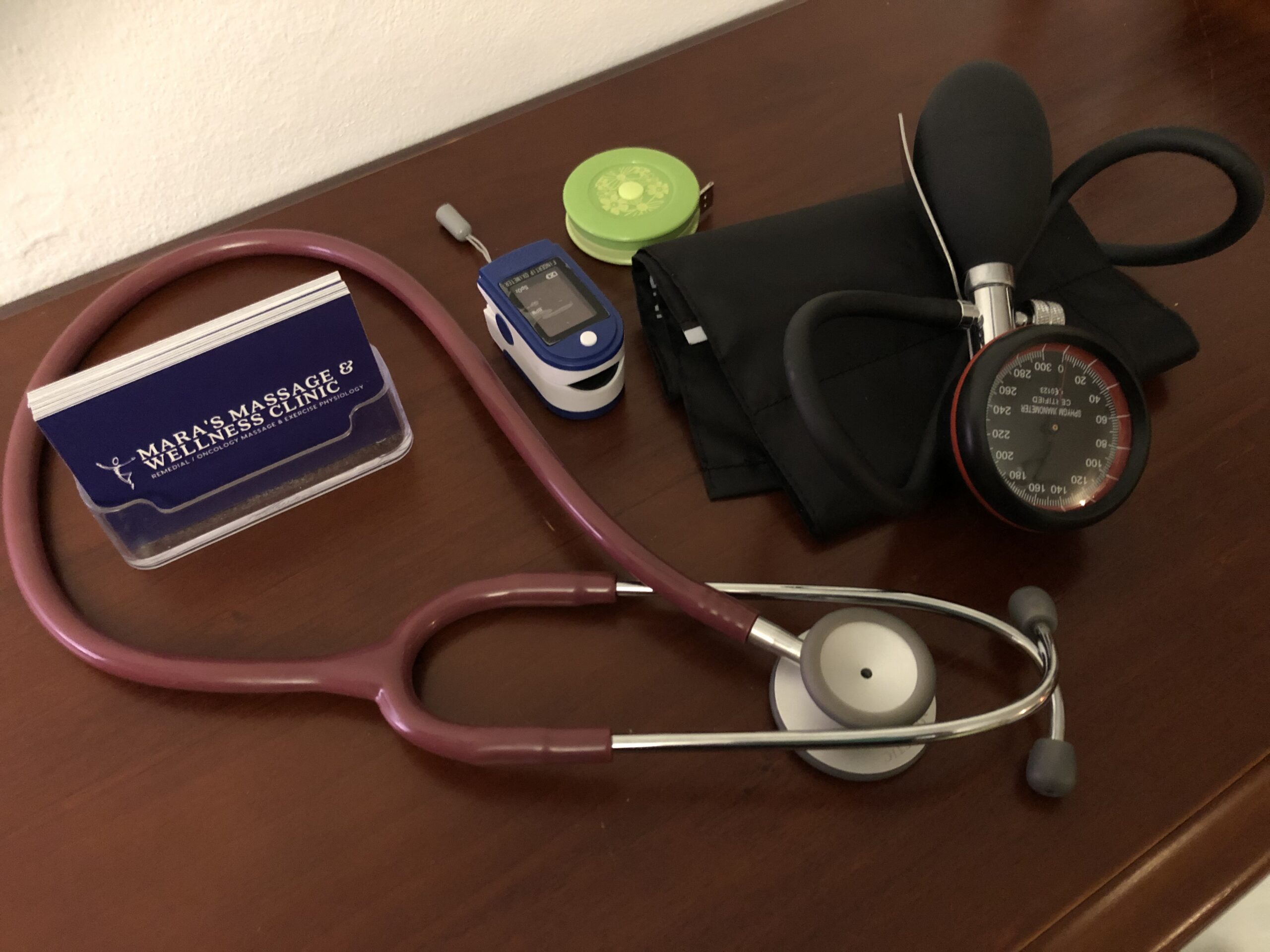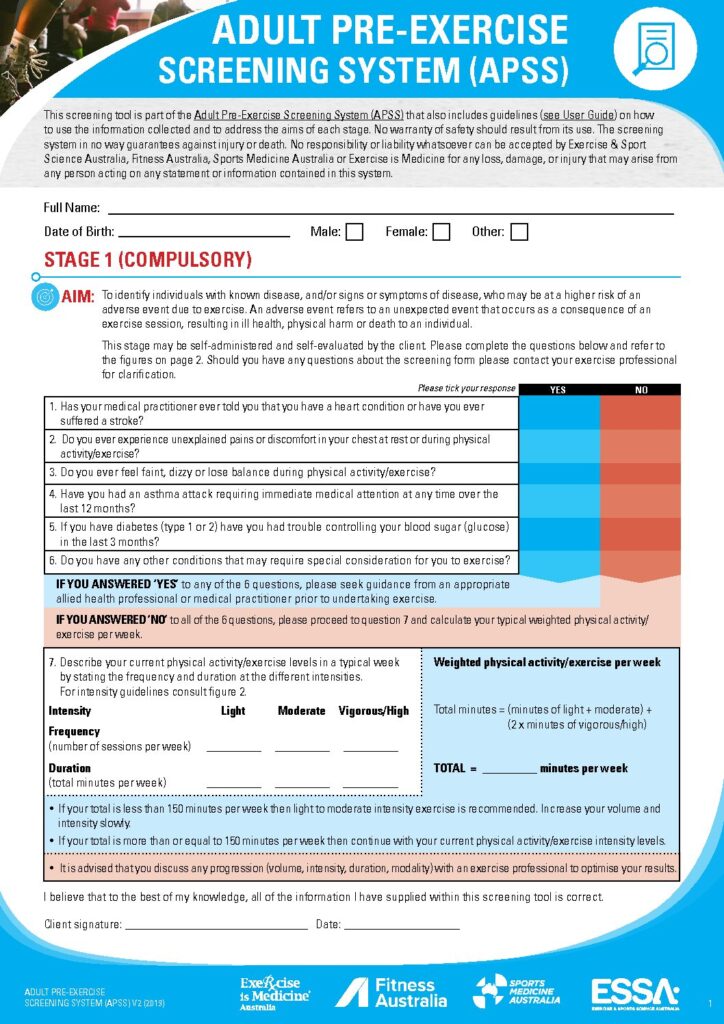I'm Tamara from Mara's Massage & Wellness Clinic in Bangor NSW. I'm an Accredited Exercise Scientist and Accredited Exercise Physiologist plus a member if ESSA. I am also a Remedial and Oncology Massage Therapist.
Exercise Physiology consultations are available during the day, afternoon and evenings. Telehealth appointments via phone or video are also available. Exercise Physiology provides exercise advice, education and rehabilitative exercise prescriptions for complex and chronic conditions as well as many other conditions.
Treatment plans are discussed and agreed to by both parties. The process generally involves booking an initial 60 mins Appointment. The next session is exercise testing and programming an generally takes 60 mins. Session after that will vary from 60-30 mins however this will be discussed and agreed to for each care. Complex cases my require 60 mins session and an initial may required a 90 min Initial consultation. Contact me (Tamara) to make your booking now!
What is an Accredited Exercise Physiologist?
Accredited Exercise Physiologists (AEPs) are allied health professionals who are university trained (4 years) to competently deliver, design and implement safe and effective exercise interventions for people with acute, sub-acute or chronic/complex medical conditions, injuries or disabilities.
Accredited Exercise Physiologist often work with individuals with cardiovascular, metabolic, neurological, musculoskeletal, cancers, kidney, respiratory / pulmonary and mental health, and any other conditions for which there is evidence that exercise can improve the client’s clinical health status.

What does an Exercise Physiology treatments involve?
Exercise Physiology treatments involve a 60 mins initial assessment where health history, current presenting issues and goals are discussed. Then a treatment plan is created. Pre-Exercise screening is also assessed to ensure that exercise is appropriate and cleared by a GP or specialist. The second appointment involved exercise testing and programming. Session after this vary depending on the individuals treatment plan. Regular monitoring, progression and education plus reassessment are also important components of ongoing exercise physiology.
A tailored exercise plan is an effective way to achieve your health, fitness and rehab goals. Exercising right... ie. the right frequency, duration, intensity, type as well as exercising safely as tolerated and with good technique will lead to positive self care and management of health conditions.
Physical Activity in Australian Population:
The rates of physical activity or exercise in Australia are becoming more problematic and with that comes a variety of health challenges. Starting an exercise program requires planning and behaviour change. Accredited Exercise Physiologist's are equipped with the skills to help combat this and assist individual to develop a more physically active lifestyle.
When you begin a new exercise regime it is ideal to ensure that the experience is positive and that gradual progression occurs. We want to develop and sustain an active healthy lifestyle and/or develop a lifelong physical activity regimes that assists us in better self caring for our health. Exercise Physiology Services can help develop your skills to complete this.

Workshops/In-services and Education Sessions for Group Environments:
I am able to deliver health care education for groups also. I have courses/workshops available for delivery to workplaces, community organisations and small interest groups. The topics currently available include: Manual Backing Education, Back Care Education, Pre and Post Natal Care Perspectives from an AEP, Active Again and Safe Exercise. If you would like a session on a specific topic... contact Tamara and discuss it further. I am a positive, energetic individual who is passionate about making a different and sharing information about heath, fitness, wellness plus chronic disease management and rehabilitation. I can prepare the content you need.
Costs and Funding:
An initial 1 hr Exercise Physiology Consultation is $135. Hourly consultation sessions are $135. A 30 min Follow Up Exercise Physiology Consultation is $90. Telehealth service fees are as follows: 60 mins = $135 and 30 mins $90. Good internet and/or phone service and access to a laptop or ipad from your end is required for Telehealth appointments.
Complex cases may require more time to ensure a safe and effective exercise program is delivered. Further fees may be incurred for complex cases. Home based consultations may be offered if required and feasible. Please discuss this with Tamara if you feel it is required.
There are various funding models that help cover the expenses of Exercise Physiology services. Some of theses included private health, Medicare, DVA, WorkCover, CTP and self managing NDIS client's. You cannot claim the services fees with your health fund if funding is completed via another referrer. Example: You cannot claim with both your health fund and medicare. Telehealth consultations may or may not be available depending on your referral method. COVID19 has resulted increase accessibility to Telehealth for Medicare CDM Plans, DVA, WorkCover and CTP and NDIS. Call Tamara to discuss this further.
Appointments:
Exercise Physiology appointments are available at the home based clinic during the day and evenings but consultations are by appointment only. My home based Clinic in Bangor is set up to provide services.
Telehealth may or may not be available depending on your referral method. COVID19 has resulted increase accessibility to Telehealth for the short term in 2020. Home based consultations may be offered when required during COVID however please discuss this with Tamara if you feel it is required.

Pre-Exercise Screening:
A pre-exercise screening is required for every patient. Please see the attached link. If you answer "Yes" to any of the questions on page One please see your GP first and obtain a letter to approve your capacity to engage in treatment. If we do not have a signed GP Letter Exercise Physiology rehabilitative exercises cannot be prescribed.

Further Information:
Give Tamara a call if you seek guidance regarding Exercise Physiology Services. She is more than happy to discuss and assist. The Exercise Right website for further information about safe exercise. The Exercise and Sport Science Australia (ESSA's) website can also provide further information.
Benefits of Physical Activity
There are many benefits of Physical Activity. I could talk all day about the benefits of Exercise and during consultations, I will discuss the specific benefit of exercise for you! See the below link that details the Benefit of Exercise. But... always remember the "REAL Reason" you are exercising as this is often your motivating factor and will help you to continue to find the inspiration to continue with your health, fitness, and rehabilitation goals. https://www.cdc.gov/physicalactivity/basics/pa-health/index.htm
Physical Activity Guidelines:
Visit the Department of Health's website for your copy of the Physical Activity Guidelines for Australians. Please note there are different guidelines for different population types in Australia. https://www1.health.gov.au/internet/main/publishing.nsf/Content/health-pubhlth-strateg-phys-act-guidelines
Exercise Contraindications
There are some conditions where exercise is not indicated. As per the American College of Sports Medicine’s Guidelines for Exercise Testing and Prescription (Eight edition, 2010 by publishers Wolters Kluwer Lippincott Williams and Wilkins) the Absolute Contraindications to Exercise:
- A recent significant change in the resting ECG suggesting significant ischemia
- Recent myocardial infarction (within 2 days) or other acute cardiac events
- Unstable Angina
- Uncontrolled cardiac dysrhythmias causing symptoms or heamodynamic compromise
- Symptomatic severe aortic stenosis
- Uncontrolled symptomatic heart failure
- Acute pulmonary embolus or pulmonary infarction
- Acute myocarditis or pericarditis
- Suspected or known dissecting aneurysm
- Acute systemic infection, accompanied by fever, body aches or swollen lymph glands
If you have one of the above conditions exercise if not recommended for you.
The Relative Contraindications for Exercises are conditions that can be superseded if benefits outweigh the risks of exercise. In some instances, these individuals can be exercised with caution and/or using low-level endpoints, especially if symptomatic at rest.
- Left main coronary stenosis
- Moderate stenotic valvular heart disease
- Electrolyte abnormalities (eg. Hypokalemia, hypomagnesemia
- Severe arterial hypertension (i.e. systolic BP of >200mm Hg and/or a diastolic BP of >110mm Hg) at rest
- Tachydysrhythmia or bradydysrhythmia
- Hypertrophic cardiomyopathy and other forms of outflow tract obstruction
- Neuromuscular, musculoskeletal or rheumatoid disorders that are exacerbated by exercise
- High-degree atrioventricular block
- Ventricular aneurysm
- Uncontrolled metabolic disease (eg. Diabetes, thyrotoxicosis, or myxedema)
- Chronic infectious disease (eg mononucleosis, hepatitis, AIDS)
- Mental or physical impairment leading to inability to exercise adequately
The above conditions require GP / Specialist clearance to exercise and exercise under an Accredited Exercise Physiologist's guidance to ensure safety.
Information for Different Populations:
Please see the link below for educational facts sheets for exercise for different populations/medical conditions.
